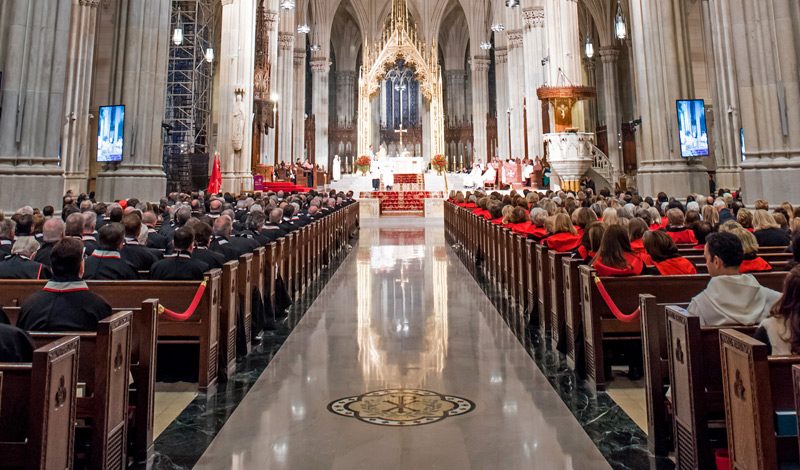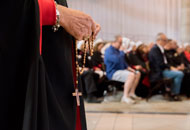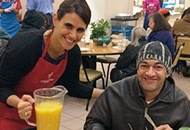This story is the sixth in the new “Best Practices” series from the American Association’s Prison Ministry Committee. Read part one here, part two here, part three here, part four here and part five here.
Remaining Resilient during Prison Ministry Service
A Catholic Prison Ministry Coalition’s Conference Session
by Alexandra Lehmann
This past December the American Association of the Order of Malta helped sponsor the Catholic Prison Ministry Coalition’s first virtual conference. Over 600 professionals, clergy and volunteers engaging in prison ministry assembled online from all over the country. CPMC started in 2018 as a national networking resource for Catholic organizations. Today it is recognized as an essential non-profit for U.S. prison ministry formation. Doug Sandvig, KM, active in the Federal Assoc. PM programs, sits on its Board of Directors.
One of the sessions addressed the importance of individuals’ maintaining resiliency when engaging in prison ministry service.
“Avoiding burnout is a lot easier than recovering from it,” said Father George Williams, SJ, one of the founding members of CPMC. Fr. Williams holds a Masters in Divinity and in Criminology, acted as a Pastor at St. Quentin Prison with the Department of Corrections in California and is now Pastor of St. Agnes Parish in Haight-Ashbury, San Francisco.
Father Williams was joined in a discussion on the importance of prayer for prison ministry volunteers and professionals by psychologist Kelley Watts, PhD in Houston, Texas, and Bishop Bill Wack, of the Archdiocese in Tallahassee, Florida.
Bishop Wack observed that that there is so much to do in prison ministry and that there aren’t many who are committed to doing it. His Excellency also commented on volunteers consistently being asked to do more because of the low number of volunteers in this ministry. He emphasized the importance of being able to say ‘no’ in order to preserve one’s health. In several places in scripture, Jesus provides an excellent example of the importance of retreating to a quiet place to pray. Resiliency is a key characteristic for those who persevere in the rewarding challenge of delivering God’s word and love to the incarcerated.
You Need to Fill Your Cup, so You Have More to Pour
Dr. Watts joined in by defining key characteristics of resilient people. They include:
- having the ability to ‘bounce’ back from stress and hardship,
- believing they have influence in their lives, and
- seeing themselves as strong and as connected to something greater and to each other.
Dr. Watts’ practice focuses on helping others learn resiliency, a teachable trait she likened to a muscle that needs to be strengthened. While everyone may benefit from different ways of praying, Dr. Watts emphasized that morning prayer and practicing gratitude is a self-compassionate way to help focus on one’s own needs. When quiet, one can see where deficits of self care lie and how to go about addressing them. She sees an essential need to prioritize physical well-being first (nutrition, sleep and exercise).

A Knight of Malta and weekly volunteer at a Massachusetts Correctional Institution for close to ten years shared later about his morning ritual which included incorporating part of the Catholic tradition by praying one decade of the rosary and then focusing on the Beatitudes.
“They help me to see that I do not have to earn God’s love,” he said, preferring to remain anonymous. “Life is not a proving ground. During my morning walk, I focus that I am not on a treadmill and recognize that a balanced life is a better one. This makes it easier not to overextend myself…but this isn’t so easy. Often it is just myself and another volunteer trying to make a difference inside of a prison population of over 800 men.” Father Williams also mentioned the importance of incorporating traditional Catholic prayers into one’s morning prayer time.
“The Long Loneliness” and Importance of Community
While prison ministry can be a lone vocation due to some of its programs and the low but growing numbers of its volunteer base, it is vital, agreed Bishop Wack, Fr. Williams, and Dr. Watts, to seek out and belong to a community which provides a sense of buoyancy and interconnectedness. People who support you provide energy for your direction.
“If you don’t have a community that supports your essence and what you believe in, build one,” advised Bishop Wack. Sometimes, he added, community can be just one person who confirms your place in this difficult world. Our prison ministry volunteer at the Massachusetts Correctional Institution also commented that the men he serves still remember Fr. Williams. He was active in this prison over twenty years ago.
For more information on joining the American Association’s growing prison ministries, please contact co-chair of the Prison Ministry Committee, Mary Jo Kriz, Maryjo.kriz@gmail.com. Best Practices #6 written by Alexandra Lehmann, PMC volunteer.
# # #






